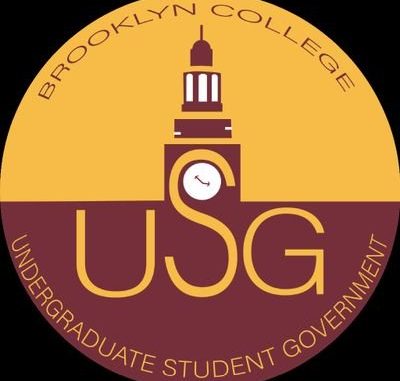
By Gabriela Flores
Brooklyn College’s Undergraduate Student Government recently petitioned a referendum that calls for the student activity fee to decrease by 90 cents in the fall and spring semesters and by $18.95 in future summer terms. The referendum, which also targets issues pertinent to the student government’s structure, did not receive the 10% student body threshold needed to be added for voting in the upcoming student government election. Nonetheless, USG leaders are working to present the referendum this election season.
“Each year since USG came to be, we’ve been modifying and updating and working out the kinks in our constitution and the way we function,” said USG President Iqura Naheed. “[…] I feel like it’s just a normal step in the evolution of making a better student government each year.”
The student activity fee for fall and spring currently costs BC undergrads $113.40 per semester, funding student organizations and activities like USG and the Vanguard. To date, USG oversees 104 clubs, according to Ron Jackson, BC’s Vice President for Student Affairs. USG currently manages two separate streams of funding backed by student activity fees: a $60,000 operating budget for its necessities and a $163,000 club allocation budget exclusively for the organizations it oversees.
Besides the clubs that USG oversees, BC has referendum groups like the Women’s Center, that receive student activity fees directly from the college rather than USG.
Under the latest referendum, members called for some groups to lose their referendum status and move under USG, primarily because it would allow for the student government to reallocate funds to active organizations that need funding. The proposed decrease of 90 cents for the fall and spring terms comes from the $1 allocation reserved for Night Call News, a publication that has not been active since 2019.
“Since they’re not active, it just stays over there, and nobody uses the money, and there’s no way for USG to reallocate it to clubs that are actually active,” said Aharon Grama, USG’s Vice President.
News outlets like the Vanguard, which has a referendum status to avoid conflict of interest in reporting USG and other student affairs, were not proposed to move under USG. However, for other referendum organizations, USG’s proposals would make them like “any other club,” Jackson explained.
“They will no longer be guaranteed funding but would be eligible to request funding like all the other clubs from student government,” Jackson said. “It would be up to the discretion of student government to approve or not approve their request.”
In some organizations losing their referendum status, USG plans to ensure that student activity fees go directly to students and that e-boards have student representation. If USG’s proposal passes, each listed referendum group would have its allocated share of the student activity fee moved to USG’s club allocation budget. USG also proposed creating a fund oversight body within its government.
“Say the board – if it doesn’t have representation from students, they can use that money in any way that they see fit,” Grama said. “[…] I’m not saying that at the moment referendum groups are doing that, but in theory, if somebody decided to do that, we would have some oversight and we would be able to, in some way, raise awareness.”
For Austin Dragos, the President of the Student Organization for Every Disability United for Progress, the potential move of his referendum group under USG has its advantages.
“I feel like with that, it’d definitely connect USG more with the SOFEDUP club in terms of disability advocacy and awareness because in Brooklyn College there needs to be a lot in terms of how we move forward,” Dragos said.
Besides changing the structure of certain referendum groups, USG’s current referendum aims to address constitutional technicalities. Since 2019, USG has been the uniting body of two former student government organizations: CLAS and SGS. When USG formed, certain rights and privileges outlined in club constitutions remained reserved to the now-defunct CLAS and SGS. If the referendum garners enough votes and is approved by CUNY, those rights would be transferred to the existing student government.
“We’re just making sure the representation students always had on these different committees and boards still exist,” said Naheed, “and it’s still students who are able to take those seats.”
Though USG did not garner enough petition support to have its referendum on the student government ballot, members asked BC President Michelle Anderson to include their proposals in this upcoming election for student voters.
